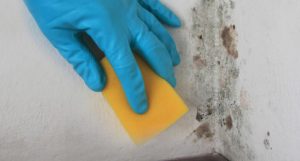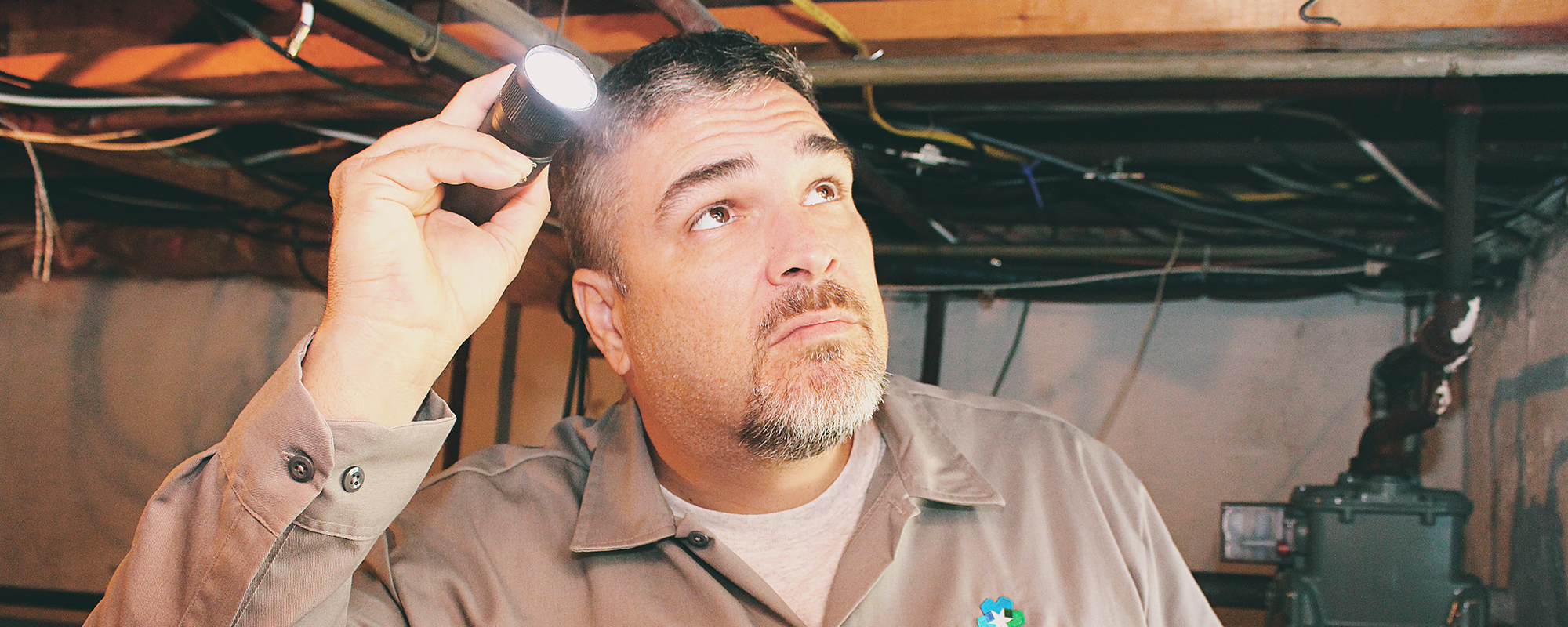
Understanding Indoor Mold Growth
Mold growth is a natural part of the environment around us, there will always be some mold everywhere. However, if you find yourself with excessive mold development in your home, that can be a problem. As long as you maintain a dry indoor environment, indoor mold levels should remain normal and non-problematic. Unfortunately, keeping a dry home may be easier said than done.
The truth of the matter is that our daily activities put a great deal of moisture into the air. Moisture that could contribute to mold growth, if we are not careful. It most cases, it is very simple to counteract the moisture we create. However, a lot of the moisture that we create is easily overlooked and ignored. The following is a list of some of the most common mistakes we make that could be contributing to mold growth.
Not using ventilation in high-moisture areas
It is easy to underestimate the impact humidity and condensation can have on the condition of your home. You do not need a major event like a serious leak or flooding to end up with mold. If neglected, and not properly addressed, little, everyday moisture buildup over time can prove to be an adequate moisture source for mold growth. That is why proper ventilation in your NJ home is so important.

-
- Bathroom activities generate a great deal of moisture. You need to run the exhaust fan and/or open the window in your bathroom to facilitate ventilation. Otherwise, moisture buildup over time from humidity and condensation can leave you with a serious mold problem.
- Kitchens, similar to bathrooms, are also high-moisture environments. This means that these spaces need just as much ventilation. Activities like cooking and cleaning can increase moisture levels in the air. Homeowners should run exhaust fans and/or open windows during and after cooking or cleaning to ventilate the space and encourage air circulation to reduce moisture buildup.
Neglecting minor leaks and plumbing problems
Leaks and plumbing problems of any size should be properly addressed right away. Unfortunately, with busy schedules and day-to-day priorities to handle, minor plumbing issues often get overlooked or ignored. All too often very small leaks or minor plumbing problems get dismissed as something to worry about later.
It is important to understand that leaks of any size can leave your home vulnerable to mold if not properly addressed. If small leaks are neglected, moisture will build up over time and leave you with a bigger problem. Even the smallest amount of pooling water can have a profound capacity to allow for mold growth.
Turning the air conditioning and/or heat off
Naturally, when you leave your home for an extended period of time, you want to turn off your heat or air conditioning. Don’t do it. Maintaining a conditioned space is important to preventing mold growth in your home.
-
- Heating: During the winter, it is best to leave your heat running, even if you will be away from your home for a couple days. The heat keeps the air dry and turning it off even for a couple of days will allow condensation to build up within your walls.
- Air Conditioning: During the summer, your air conditioner keeps your indoor humidity at acceptable levels. If you shut it off while you’re away, especially if all your windows and doors are closed up, you risk trapping warm, humid air in your home with little to no circulation.
Instead,if you are absent during the warmer months, set your air conditioner to a higher temperature (80°F-85°F). If you are going away during the cooler months, set your heater to a lower temperature (55°F- 60°F). This way you will be able to cut back on energy costs, while still maintaining a moisture & temperature controlled environment.

Ignoring window condensation
If you notice condensation forming on the interiors of your windows, it is likely the result of elevated indoor humidity levels, especially during the winter months. This does not seem like much of problem, and it is often ignored. However, window condensation is a sign that the moisture level of your home is elevated which increases the risk of mold growth.
If you are experiencing window condensation, you should take steps to reduce the moisture levels within the space.
Not drying damp areas right away
Whether it’s a spill that you didn’t have time to clean up right away or the condensation build up on your walls and shower door after a shower, it needs to be dried up immediately. If it is damp, wipe it up and make sure the area is dry. If you ignore wet areas and allow the moisture to soak into your porous building materials, you are putting your home at risk for mold development.
Using bleach to “kill” mold
Bleach is NOT an effective solution for mold growth. Despite the widely believed myth, bleach does not “kill” mold. The active ingredient in bleach is a stain remover, which means it is effective for removing the discoloration.
 The active mold roots are still there. The active ingredient in bleach, sodium hypochlorite, is merely a stain remover that cannot permeate beyond the surface of porous building materials to destroy the mold roots. The mold appears to be gone after a bleach application, but as long as the roots are intact, the mold will return. In minor cases, where the mold growth is on a hard, nonporous surface, a bleach may be effective.
The active mold roots are still there. The active ingredient in bleach, sodium hypochlorite, is merely a stain remover that cannot permeate beyond the surface of porous building materials to destroy the mold roots. The mold appears to be gone after a bleach application, but as long as the roots are intact, the mold will return. In minor cases, where the mold growth is on a hard, nonporous surface, a bleach may be effective.
Furthermore, bleach is made up of primarily water. The water in the bleach absorbs right into building materials while the sodium hypochlorite evaporates from the surface. By beaching mold, you are actually providing the mold with more water to feed on and thrive. In actuality, bleaching mold can accelerate mold growth and make your problem even worse.
Neglecting to conduct regular maintenance checks
Routine maintenance checks throughout your home (inside and outside) are so important. Regular checks allow you the opportunity to spot problems early so you can fix them right away. Routine maintenance tasks like cleaning the gutters, assessing your foundation, changing your HVAC filters, assessing for leaks and inspecting your roof are so important to keeping your home mold-free.
It’s easy to put off these tasks for tomorrow, next week, next month or even next season. Set up a schedule for yourself and stick to it. Schedule maintenance checks at least twice a year, once in the spring and once in the fall.

Often times moisture control tactics are simple and inexpensive. The hardest part is taking the time to remember to incorporate moisture control in our daily lives. The most important factor to avoiding mold development is moisture control. Preventing mold growth requires a little effort but it is well worth the effort to avoid the potential property damage and health effects it causes. By keeping the humidity level of your home under control and keeping other forms of moisture such as leaks and condensation in check, you can significantly reduce the risk of mold in your home.


